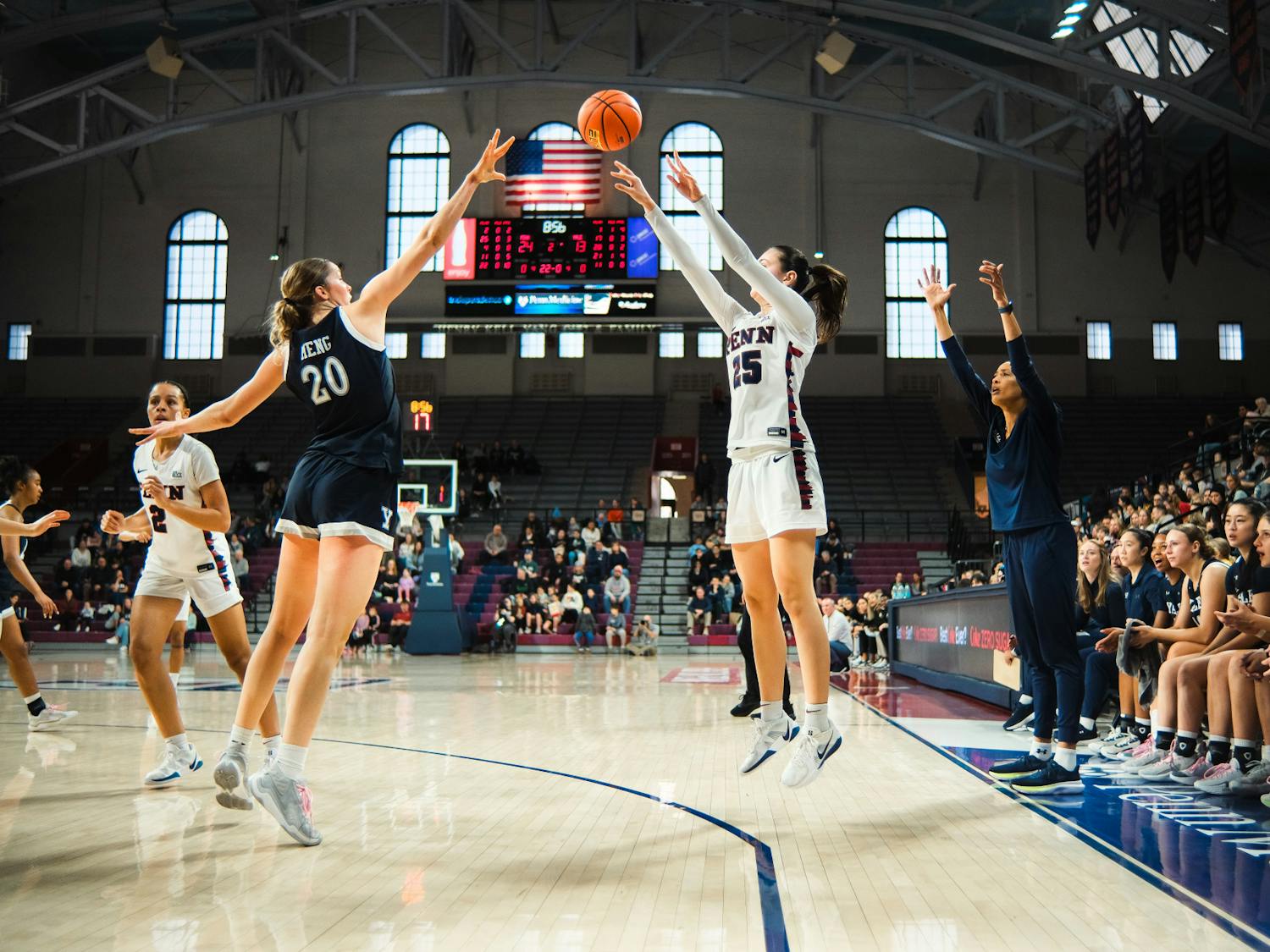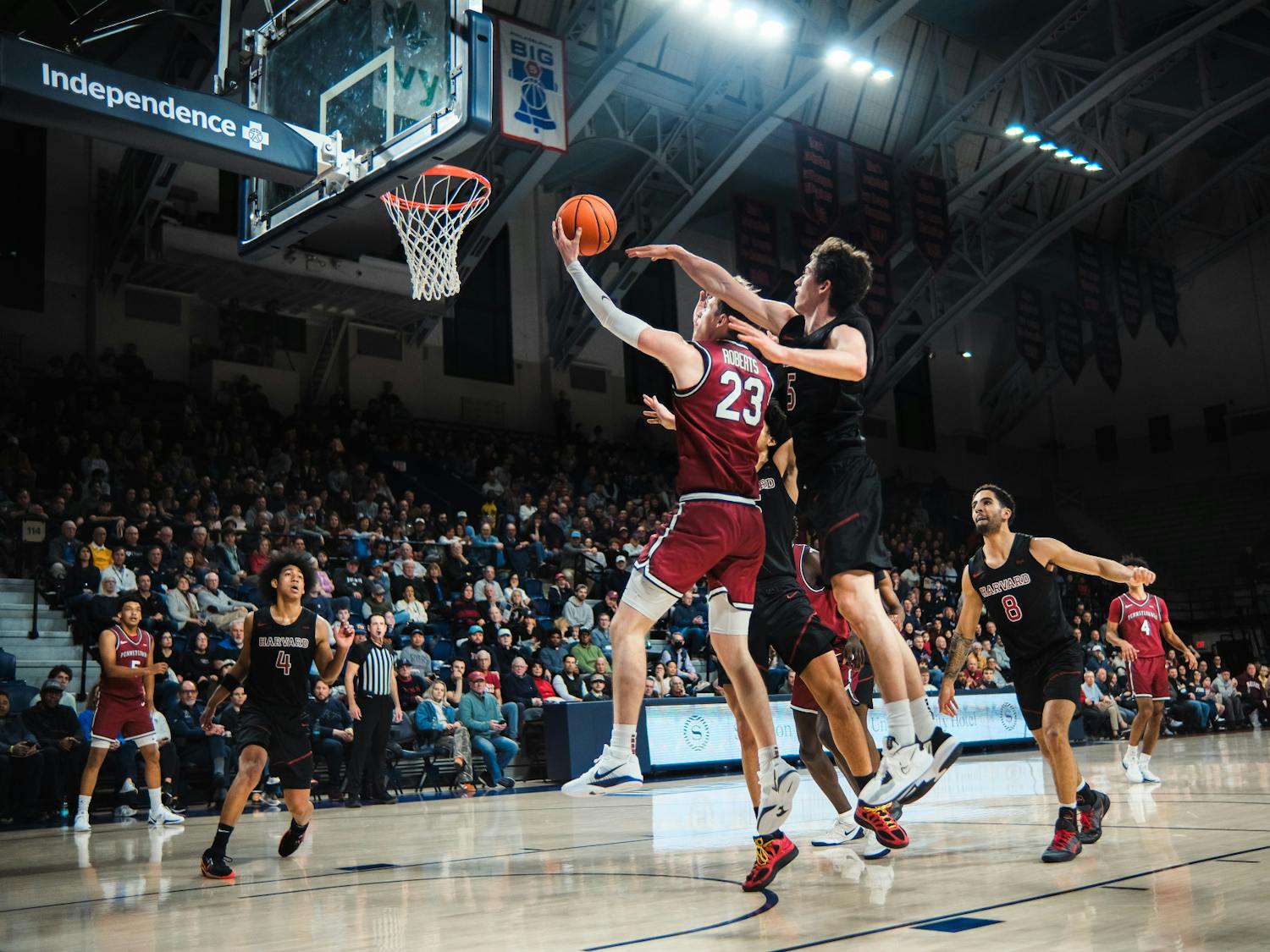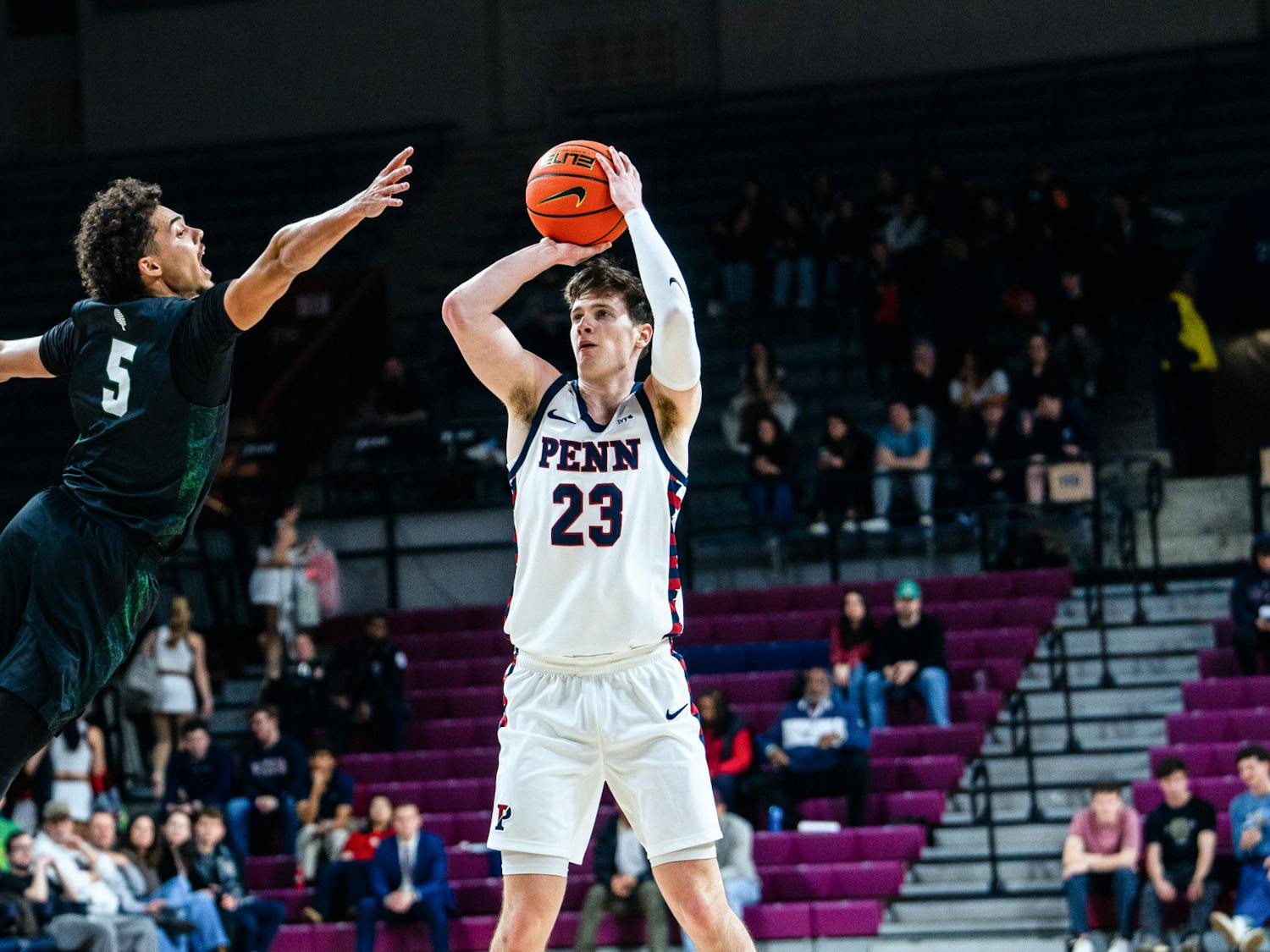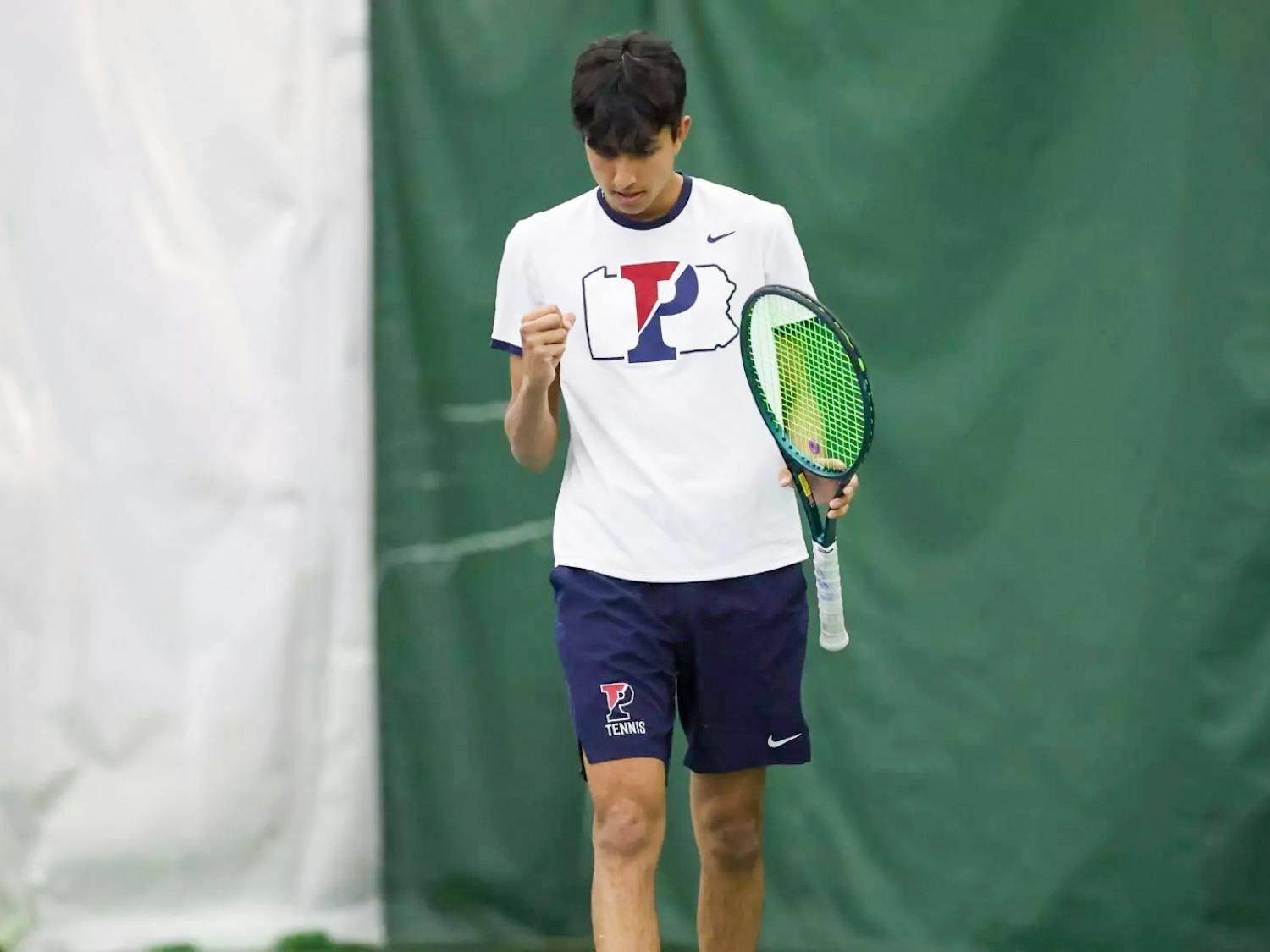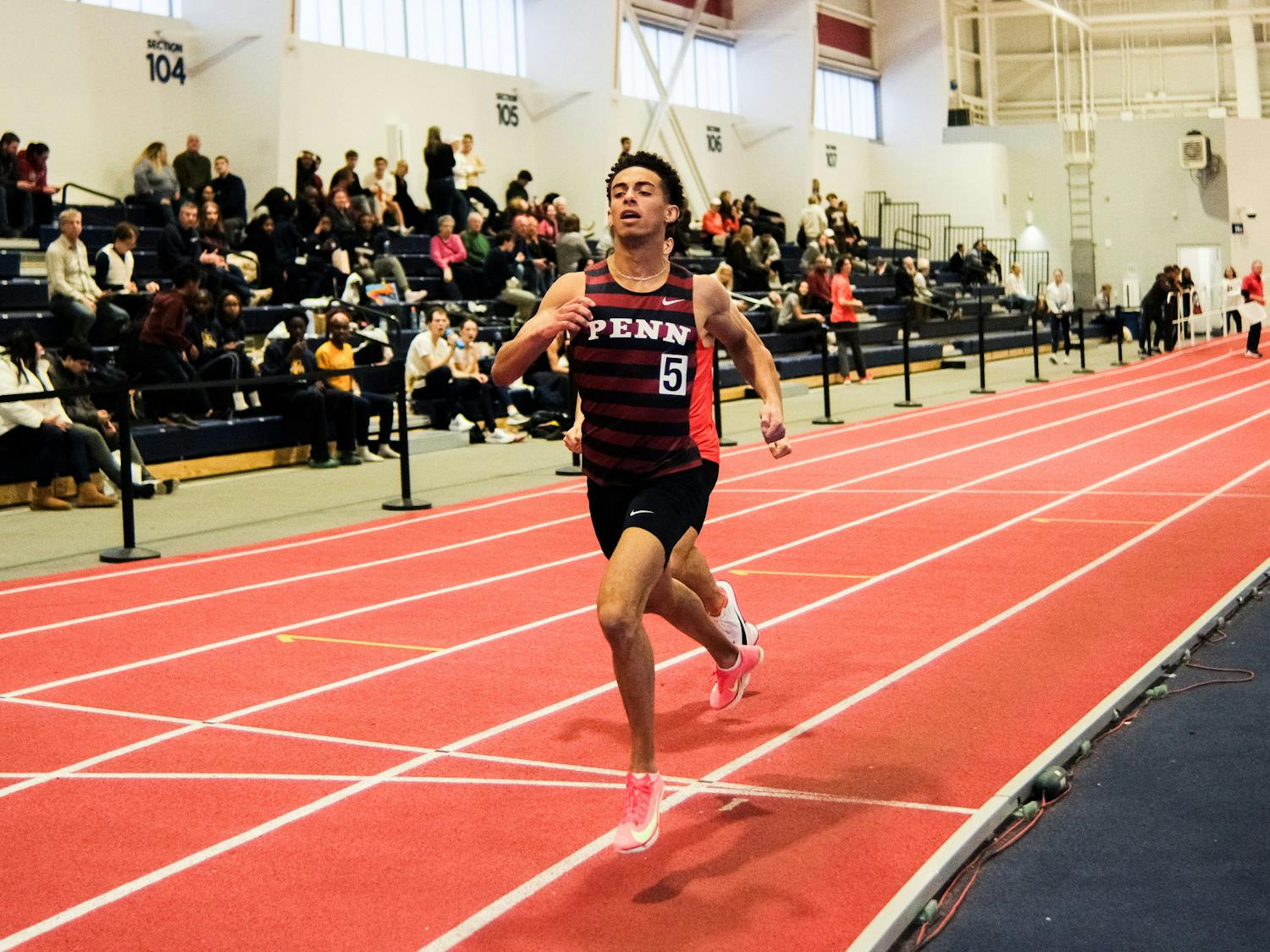As physical spaces have closed down and the ability to make personal contact has disappeared, Penn’s football coaches are utilizing technology to its fullest, using the world of Twitter, messaging, calling, and emailing players, and holding video conferences in their quest to recruit the next batch of Quaker football stars.
June is typically a dead month for recruiting, when student-athletes have finished their athletics and academic years and need a break from all the action. However, the NCAA ruled to extend the recruiting period until the end of June, in addition to granting colleges one chance at initiating a call or meeting with a prospect, spurring loads of virtual communication.
Linebackers coach Jon Dupont knows all about football recruiting. He has been a member of Penn’s coaching staff for 14 years. Prior to joining the Red and Blue, Dupont served on the defensive staff for two different Division III schools. He is also a former student-athlete himself, playing football as well as baseball at St. Lawrence.
Through his own experience as a former coach and student-athlete in several divisions, Dupont has gained experience and practice relating to kids with varying demographics, interests, backgrounds, and skill sets.
“You have to really embrace recruiting because recruiting is the lifeblood of our program,” Dupont said. “We’re going to win and lose games based on the players that we bring in.”

Linebackers coach Jon Dupont stresses the importance of an athlete’s academic performance and history when recruiting.
When examining prospects, looking at the player himself takes priority over anything. Either a player is being recruited for his overall talent and skill, or for his ability to fit a need in the Quaker’s schemes.
For Ivy League student-athletes in general, academics tends to be the biggest hurdle. At Penn, the picture looks no different, as Dupont stresses the importance of an athlete’s academic performance and history when recruiting.
RELATED:
Recruiting the best without merit-based scholarships
Penn sprint football faces uphill battle in recruiting high schoolers
The Quakers also emphasize localized and regionalized recruiting, meaning each of ten coaches is assigned a local sector to recruit within, ranging from the New England region down to Northern Virginia. The rest of the nation is divided among the rest of the coaches based on pocket regions (e.g. California., Florida, and Texas) or the number of athletes from an area in a given year.
This style of recruiting reinforces close relationships and connections with high school systems, coaches, and players. In this way, no prospect ‘slips through the cracks’ without Penn’s program at least knowing about a player. Penn football capitalizes on its relationships with high schools and regions to gather potential information about a prospect, speaking to former teammates, coaches, teachers, or family.
Without campuses and local visits, though, June continues to be a ‘dead’ month, and football coaches are turning to the digital world to carry out the recruiting process. Twitter continues to be the stable platform for coaches to not only identify and hear about talent, but also to learn about players as people.
Twitter as a medium allows for all types of information to be shared by anyone, for anyone. Nowadays, Twitter accounts for student-athletes can include players' highlight films, workout videos (replacing training camps), as well as grades and other academic indicators — not all of which may be vital to evaluating a player, however.
“The hard part is filtering through it all. You gotta be selective in what you look at,” Dupont said.
With the sheer influx of information, a large part of successfully recruiting is being able to sift through chunks of data and extract the most important parts. The relationships that are built and maintained through recruiting can aid recruiters in this process of ordering information and figuring out what is most relevant to consider.
Twitter is an easy, effective way for recruiters to build bonds with prospects, whether that be from retweeting or liking their posts, or reaching out to them in direct messages.
When recruiting players themselves, the aim is allowing a player to understand how they fit into the coaches’ schemes, and seeing exactly how football and coaching function at Penn. Coaches are trying to convince players that Penn can best satisfy their own personal visions, and moreover, make them a part of an organization set on achieving something beyond individuals.
From Dupont’s perspective, “it’s never about me,” because a player is not deciding on a school based on an interaction with a recruiting coach. Dupont views absolutely no loss in being able to talk to and develop relationships with kids and families from all over the country.
“My job is to be passionate about what I do and where I’m at, [and] I am very passionate about Penn and the opportunities that we offer.”




